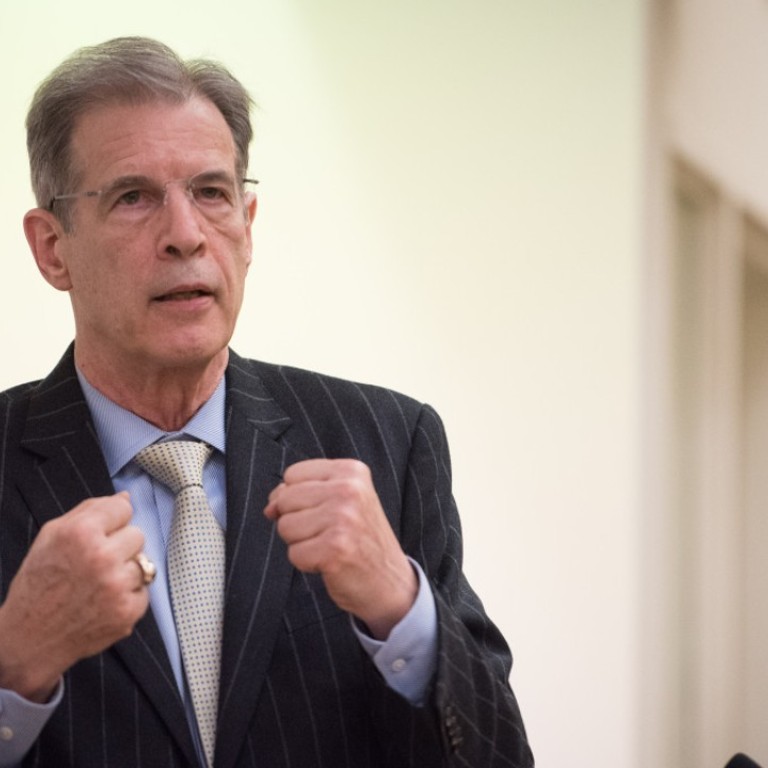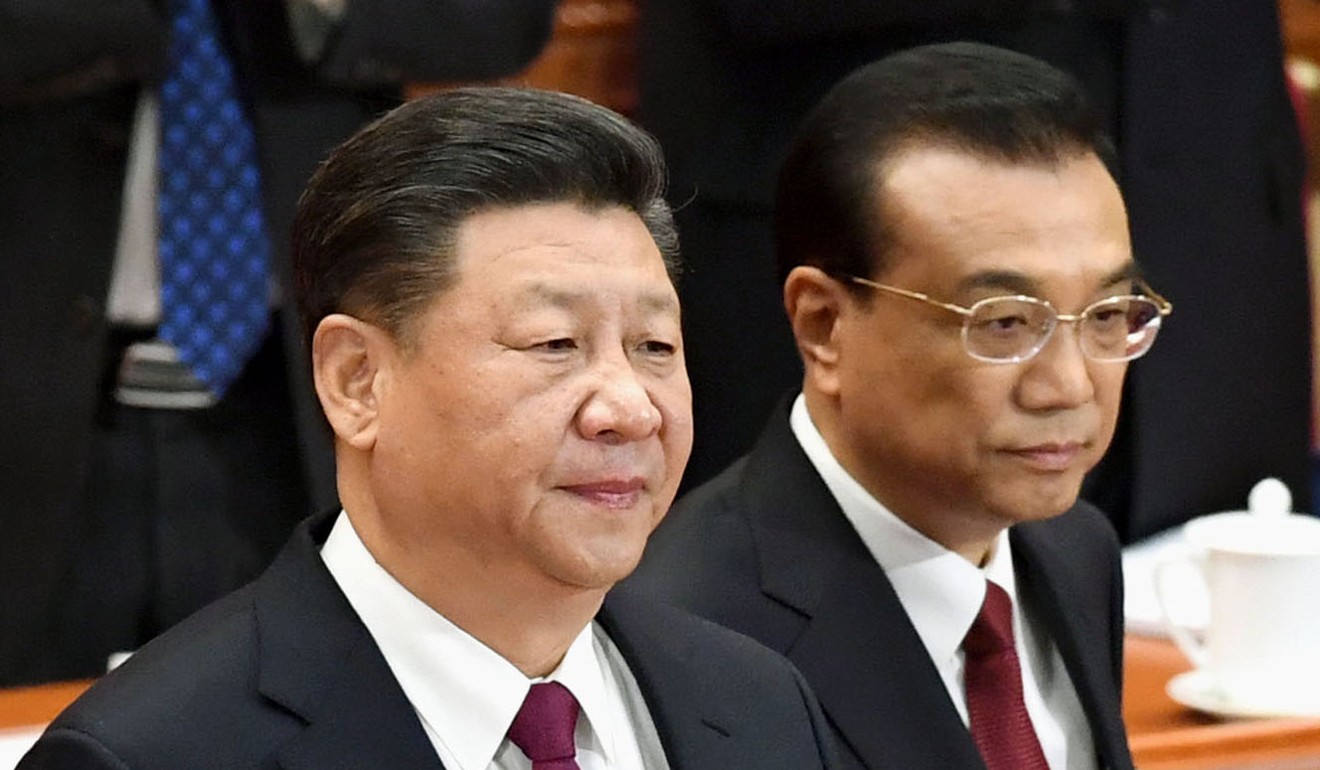
Exclusive | China’s politics getting in way of implementing ‘brilliant’ economic plan: US researcher William Overholt
- China’s political leaders are not making the tough decisions needed to implement its ‘brilliant’ economic plan and move to the next stage of economic development, US researcher Overholt says
China has an impressive plan for advancing its economy to the next level, but the unwillingness of its leaders to make tough decisions is getting in the way of its successful implementation, according to a top American researcher.
China’s economy had evolved from being very simple to being very complex, so that it could no longer be managed the same way, Dr William H. Overholt, a senior research fellow at Harvard University’s Asia Centre and its Kennedy School of Government, said in an interview on Thursday.
Unless the country’s economic management evolved, there was a risk of stagnation, Overholt said, describing the thesis in his new book China’s Crisis of Success.
Xi Jinping tells China’s economic powerhouse to ‘leverage huge opportunity’ of Greater Bay Area
All the “miracle” Asian economies – South Korea, Taiwan, Singapore – had gone through this process, but not without a certain amount of political and economic pain, he said.
When a country reached a certain point in its economic and political evolution, three things happened, Overholt said.
First, big companies find themselves in a squeeze. “In China, we find that state-owned enterprises can’t earn back their cost of capital,” he said.
Second, the whole economy finds itself over-leveraged. China “is over-leveraged and the government is trying to reduce the leverage”.
Beijing has a funding relief plan for distressed private firms but will banks follow?
Third, all those complicated economic sectors were also interest groups, and the people in those groups were educated, had money, had leadership, he said. And as powerful interest groups pushed on policy, so politics was also transformed.
To overcome such problems, a country needed both an economic plan and a political plan, Overholt said.
China had “a brilliant economic plan, but it was only being partially implemented” because of politics, he said.

The plan would subject state-owned enterprises to market-based reforms, but this “steps on the toes of every power group in China”, he said. “There’s an awful lot of pushback, infighting is terrific.”
To combat the infighting, President Xi Jinping created the anti-corruption campaign. “It’s very powerful, but it’s so powerful, it scares everybody,” the researcher said.
Bureaucrats tasked with implementing reforms were scared of being accused of corruption by those the reforms would harm, so they held back on vigorous reforms, he said. And this had resulted in the reform process going “much slower than expected”.
China’s state-owned car maker gets a huge lifeline but what about private firms?
Rather than taking risky decisions that reduced the party’s control but brought potential economic benefits – as China’s former leaders Deng Xiaopeng, Jiang Zemin and Zhu Ronji did – the current government sought to push forward economic reforms while strengthening the party’s control, Overholt said.
This had created “this very serious tension between the economic side and the political side”.
China had “a pretty fundamental choice between fast reform and slow growth on the one hand, or fast growth and slow reform on the other. In each case, the [Chinese government’s] policy is we’re going to have both [fast reform and fast growth]”, he said.
Beijing tells Washington to be less ‘erratic’ on trade war as Xi-Trump meeting nears
Overholt said there were three possible outcomes to Beijing’s current dilemma:
1. The optimistic result: Economic reform is successful and the country then turns to fixing the politics. “This sounds very unlikely today but the regime has shown a tremendous ability to change direction.”
2. Successful economic reform with the same political structure. But interest groups had become stronger, richer and increased the political problem, he said.
3. Economic reform does not happen. “This is what happened in Japan,” he said. Interest groups took control of the government protected themselves against both domestic and foreign competition, leading to a long period of economic stagnation.
This Japanese-style stagnation was a major risk for China’s economy and for social stability, Overholt said.
China’s export bases stand firm in trade war with the United States … for now
When Japan stagnated, its per capita income was about US$45,000. China’s is now one third of that and the Chinese were unlikely to accept that as sufficient for long, he said.
To be successful in transforming the economy and avoiding stagnation, “and I hope they will be, they will have to deal with the political problem. If they’re not successful with economic reform, they’ll have a bigger political problem”.
The United States also has major economic and political problems, Overholt said, and the trade war made the problems in both countries worse.
China’s financial crisis team goes into overdrive with 10th meeting in two months
Economic growth in both China and the US is being floated on massive amounts of debt. Overholt predicted a recession would come in “the next two or three years” and there was not much room for the US to lower interest rates or increase government spending to offset the impact.
“[So] it’s probably going to be a very long and deep recession”, he said. “Anything that makes the situation a little worse, like the trade war, will have an outsized impact.”
Overholt also predicted there would be no “early end” to the trade war, because it was part of a bigger conflict between the US and China.
“I am very worried, I think it’s very difficult to be very optimistic at this point,” he said.

